Happy Wednesday! This month, 16 years ago, Ke$ha’s first hit, “Tik Tok,” was topping the charts, and would go on to be one the best-selling digital singles of all time. Listening to it all these years later, it still stands up as an amazing piece of electro-centric dance pop, except for its unfortunate opening line: “I wake up in the morning feeling like P. Diddy.”
Quick Hits: Today’s Top Stories
- On Tuesday, a divided three-judge panel of the 5th U.S. Circuit Court of Appeals granted a preliminary injunction that bars the Trump administration from using the 1798 Alien Enemies Act (AEA) to fast-track removals of Venezuelan nationals allegedly tied to the Tren de Aragua gang. The majority concluded the record does not show a “declared war,” “invasion,” or “predatory incursion” by a foreign nation or government—the statutory triggers for the AEA—but does not prevent removals under ordinary immigration laws. The administration is expected to seek Supreme Court review.
- U.S. District Judge Charles Breyer ruled Tuesday that the Trump administration “willfully” violated federal law by using 4,000 National Guard troops and 700 Marines for law enforcement activities in Los Angeles this summer. The 52-page ruling, Breyer found that Trump’s June deployment to control immigration protests violated the Posse Comitatus Act, a 19th century statute prohibiting domestic law enforcement by the military, with troops systematically conducting crowd control and traffic blockades. California Gov. Gavin Newsom celebrated the decision, saying it proved Trump was “breaking the law by creating a national police force with the President as its chief.” Breyer delayed implementation of his injunction until September 12 to allow for appeals, while about 300 Guard members remain stationed in Los Angeles under federal control.
- China held its largest-ever military parade Wednesday in Beijing to commemorate the 80th anniversary of Japan's World War II surrender, with Chinese President Xi Jinping flanked by Russian President Vladimir Putin and North Korean dictator Kim Jong Un. The massive display in Tiananmen Square showcased China's advanced weaponry, including nuclear-capable missiles that can be launched from land, sea, and air. Xi declared China's rise “unstoppable” while emphasizing the military’s role in defending sovereignty and territorial integrity, in an apparent reference to Taiwan. Trump responded on Truth Social by sarcastically telling Xi to “give my warmest regards to Vladimir Putin, and Kim Jong Un, as you conspire against The United States of America.”
- Defense Secretary Pete Hegseth has approved sending up to 600 military lawyers to serve as temporary immigration judges, the Associated Press reported Tuesday. According to a memo the outlet said it reviewed, the Justice Department requested the assistance from the Pentagon, which will identify the first round of 150 attorneys by next week. The total deployment would double the ranks of immigration judges as the Trump administration ramps up deportation efforts nationwide. The memo specified that duties will initially last no more than 179 days but can be renewed.
- During an Oval Office press conference, Trump announced Tuesday that the U.S. Space Command headquarters will relocate from Colorado to Alabama, reversing a Biden administration decision to keep the facility in Colorado Springs. Trump said the move to Huntsville, nicknamed “Rocket City,” would result in “more than 30,000 Alabama jobs” and significant investment in the region, while citing Colorado’s mail-in voting system as “a big factor” in his decision. The decision caps a four-year political tug-of-war between the two states, with Colorado’s entire congressional delegation condemning the move as weakening national security “at the worst possible time” and vowing to fight the relocation.
- In the same Oval Office meeting, Trump confirmed that he will direct federal law enforcement intervention in Chicago and Baltimore despite fierce opposition from Democratic officials in both cities. “We're going in,” he told reporters who asked about the deployment, without specifying when. Illinois Gov. JB Pritzker called Trump's comments “unhinged” and vowed not to request federal troops, while Illinois Attorney General Kwame Raoul said the state will sue once federal intervention begins.
- Trump also announced during the meeting that the U.S. military had “shot out” a drug-carrying boat from Venezuela “moments ago,” later writing on Truth Social that 11 alleged members of the drug cartel Tren de Aragua were killed in the strike. Secretary of State Marco Rubio described the operation as a “lethal strike” in the southern Caribbean “against a drug vessel which had departed from Venezuela and was being operated by a designated narco-terrorist organization.” U.S. Navy ships began patrolling the waters near Venezuela last month.
- A landslide leveled the village of Tarasin in Sudan’s Darfur region on Sunday, with the local rebel group Sudan Liberation Movement-Army estimating more than 1,000 people were killed and only one survivor found. A United Nations official estimated a significantly lowered death toll of 370 to the BBC on Tuesday, noting the difficulty of assessing the full scale due to the remote mountain location. The tragedy represents one of Sudan’s deadliest natural disasters in recent history, occurring amid a civil war that has displaced 14 million people and killed hundreds of thousands.
- U.S. District Judge Amit Mehta ruled Tuesday that Google will not be forced to sell its Chrome browser or Android operating system in the landmark antitrust case. The judge instead ordered Google to share data with “qualified competitors” and end exclusive contracts for its search distribution, while still allowing the company to pay partners like Apple—which receives more than $20 billion annually to make Google the default iPhone search engine. The decision falls far short of the Justice Department’s most aggressive proposals, including spinning off the Chrome web browser, which accounts for 35 percent of Google’s U.S. search volume. Shares of Google parent company Alphabet jumped 8 percent in after-hours trading.
Golden State of Mind
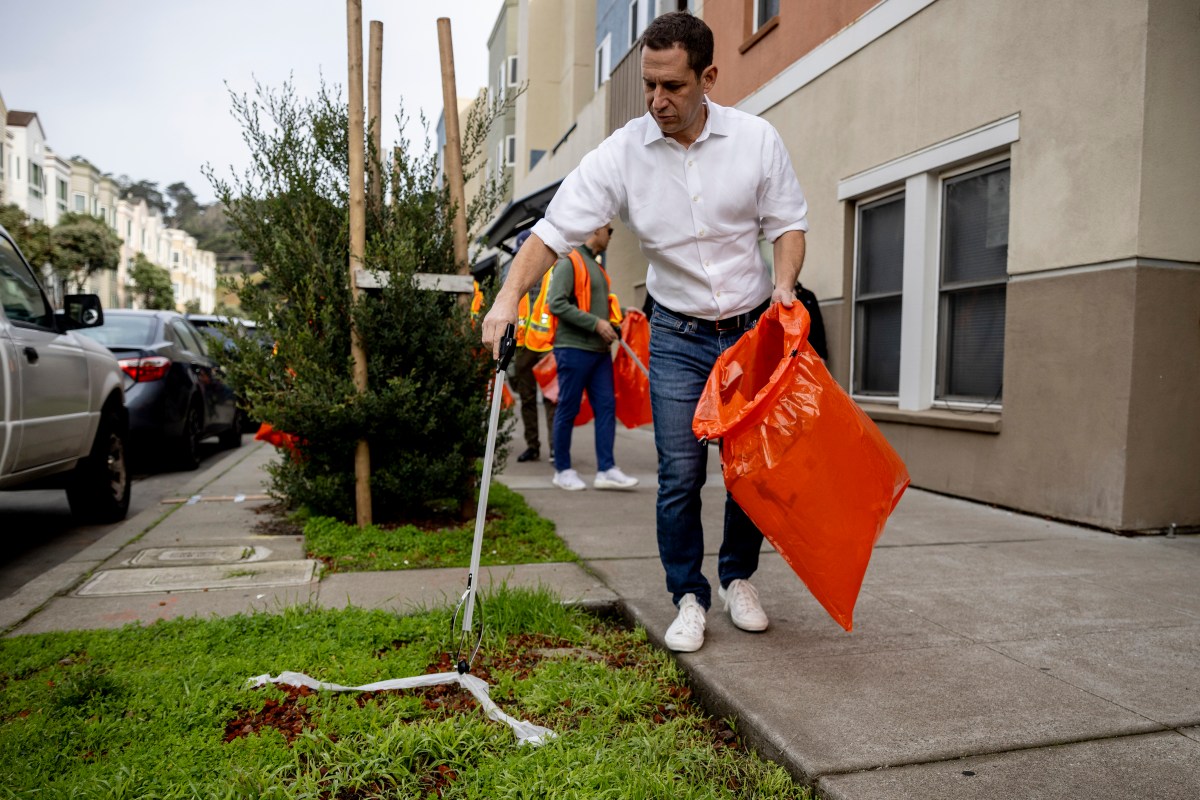
San Francisco earned a bad reputation during the COVID years. Around the globe, the city’s name became synonymous with persistent street disorder and homelessness, far-left politicians seemingly uninterested in tackling the city’s problems, and jaw-dropping housing costs (median monthly rent hovers around $3,000). Even as open drug use became a fairly common sight in parts of the city, the local school board prioritized renaming schools named after George Washington and Abraham Lincoln.
As tech workers fled the city (and their offices), corruption scandals proliferated, and street vagrancy seemed to only worsen, San Franciscans increasingly found themselves in a “doom loop” of falling commercial real estate and income tax revenue straining city services, further encouraging all but the homeless and very rich to leave the city.
Five years later, though, the city may be on an upswing—perhaps in part due to the 2024 election of Mayor Daniel Lurie, who assumed office eight months ago. The city’s only major mayoral candidate to never have held prior public office, Lurie—who self-funded his campaign and is the great-grandnephew of denim tycoon Levi Strauss—finished first in the city’s rank-choice voting system, eclipsing opponents such as the unpopular incumbent Mayor London Breed.
According to a July poll commissioned by the San Francisco Chronicle, Lurie enjoys a 73 percent approval rating among city residents, a stark contrast to the 28 percent approval rating his predecessor scored in July 2024. If Lurie’s popularity lasts beyond the honeymoon phase, could he be a model for other Democrats across the country?
Gone from Lurie’s politics is “defund the police” progressivism that became so popular in 2020. On the campaign trail, Lurie stressed that a “fully staffed police department” is “my number one priority,” and advocated for organizing new police districts. He vocalized the need to clear up the city’s homeless encampments, but his call for action extended beyond just an expanded police presence, balancing a tougher-on-crime approach with proposals for more emergency shelter beds, mental illness and drug rehabilitation treatment plans, and making public transportation more accessible.
Lurie’s most concrete accomplishment yet might be his ability to make San Franciscans feel hopeful about their city again. Part of this is simple shoe-leather mayoring. “London Breed was my [regionally elected] supervisor and then my mayor, and I never saw her in my neighborhood,” Ben Fleischmann, a longtime resident of the city’s Western Addition neighborhood, told TMD. “Daniel Lurie’s been mayor for six months and I’ve seen him four times.”
Clad in a tailored suit and tie—which stands out in a city where tech CEOs show up to work in jeans and hoodies—Lurie is a relentless cheerleader for San Francisco’s businesses, especially the struggling downtown. “So, you got rid of the liquor license, don’t sell tobacco, and now just sell amazing sandwiches,” Lurie, in a video posted on Instagram, said to a local business owner who purchased a corner store to turn into a deli. “Thank you for what you do for the community.”
Even one of the top aides of Lurie’s predecessor is praising his efforts. “A mayor’s job is not just being right on policy,” Sean Elsbernd, the CEO of SPUR, a Bay Area think tank and Breed’s former chief of staff, told TMD. “More than half of a mayor’s job is messaging on the policy, and Mayor Lurie is doing an excellent job on all things messaging” he said. Last week, Visa committed to returning its annual Payments Forum conference from Dallas to San Francisco’s convention hub—the Moscone Center—beginning in 2026. So far this year, the Moscone Center has seen average daily hotel room bookings jump 64 percent from 2024, according to the nonprofit San Francisco Travel Association, which also noted that overall tourism is expected to “rise modestly” from last year.
The other factor here is the new AI boom, with San Francisco—and Lurie—benefiting from another gold rush. OpenAI CEO Sam Altman was even on Lurie’s transition team. According to the global real estate services company Jones Lang LaSelle (JLL), 42 percent of U.S.-based AI companies reside in the San Francisco Bay area, with the collective value of the region’s AI companies worth about $70 billion, comprising about 52 percent of global AI capital.
On the campaign trail, Lurie also called for permitting reform, citing tedious yet extensive paperwork and mystifying fees that have left many would-be entrepreneurs unable to operate. As the San Francisco Chronicle reported in April 2021, proprietor Jason Yu worked relentlessly to open up an ice cream shop in the city, and yet, after nearly two years of navigating a bureaucratic maze and draining $200,000 in the effort, strict permitting requirements prevented the business from ever opening. On Tuesday, the mayor unveiled a permitting reform legislative package that, if passed, would “allow San Franciscans to park in their own driveways,” “ease restrictions for how historic buildings can be used,” “reduce permitting fees,” “make it easier to add accessory dwelling units,” and no longer require “that all excavation permits include a parking plan,” Lurie’s office said.
Crime and homelessness have been the city’s most significant issues, and though it’s too early to grade his efforts, Lurie has not shied away from the topic.
Lurie said in his inaugural speech that he would hold accountable those who “come to San Francisco to deal drugs or do drugs on our streets.” On August 28, Lurie announced that the city had signed a partnership deal with the California Department of Transportation to address homeless encampments. Democratic Gov. Gavin Newsom has also ramped up enforcement, directing state workers to physically clear out encampment sites. A little more than a year since the U.S. Supreme Court ruled that local government prohibitions against camping or settling on public property did not violate the Eighth Amendment’s constitutional ban on “cruel and unusual punishment,” Newsom urged California municipalities to pass laws making it illegal to camp in one space for more than three consecutive nights, which he said he wants to see implemented “across the state.”
There is anecdotal evidence showing improvement on this front. The Tenderloin, a San Francisco neighborhood known for its many theaters and lively nightlife scene, has for years faced troubling trends of open drug use and violence. Such crime is still quite rough—although some evidence suggests the number of tents has gone down—but TMD noticed last July that the notorious subway station entrance at 16th and Mission Street was remarkably clean and quiet. Indeed, the number of homeless tents and makeshift shelters that city officials counted in the Tenderloin dropped to 23, a decline of about 23.3 percent from 2024.
The most important test will come in a year, with the release of the 2026 San Francisco Point-in-Time (PIT) Count, a tally of the homeless population of San Francisco released every two years.
San Francisco’s police force remains understaffed. As Lurie’s office noted in May, it is 25 percent short of the state’s minimum recommended number of total law enforcement workers. But some analysts say part of San Francisco’s problem is that, though Californian crime was noticeable during the COVID years, the perception was simpler and more negative than the reality. “Although there was a big narrative around crime, San Francisco actually has always had pretty incredibly low violent crime rates,” David Harrison, director of public policy at the San Francisco Chamber of Commerce, told TMD. “If you look at data from January 2024 through January 2025, violent crime in San Francisco fell by 14 percent compared to 6 percent in other major cities across the country,” based on reported crime data, he said.
Despite the positive changes, San Francisco faces a severe housing shortage (city officials want to build roughly 82,000 new homes by 2031), a projected $272 million budget shortfall over the next year, and organized labor has a substantial influence in city politics. However, Lurie commands a moderate majority on the Board of Supervisors—a significant shift in San Francisco's traditional progressive-versus-moderate political divide—and has the backing of well-funded advocacy organizations like Blueprint and GrowSF, many supported by tech industry money, that have emerged as a new force in local politics.
Today’s Must-Read
American progressivism has long understood itself as a project of political liberation. From liberalizing restrictions on pornography to legalizing drugs and prostitution to broader efforts to reconceptualize the family and religion as institutions of oppression and privilege, the left’s track record is one of favoring individual autonomy over older values of community, social norms, and civic order. Yet there is a tradition of communitarianism on the political left that is often forgotten amid the protests, shoutdowns, and attempted cancellations. Democratic politicians like Daniel Patrick Moynihan, Sargent Shriver, and Robert F. Kennedy—the original, not the junior—were less afraid to tap into themes of family, community, and civic institutions as providing critical insulation against both the individualizing tendency of the market and the totalitarian temptations of the state.
Toeing the Company Line
Old News
Déjà vu about an elderly president’s health.
Is the U.S. About to Strike Venezuela?
The military buildup near the South American nation continues the Trump administration’s pressure strategy.
Keeping Up Appearances
Trump’s desire to look strong might be his greatest weakness.
The Whore House in Falls Church | Interview: Tim Carney
High crack, low crime.
Worth Your Time
It’s hard to get quality medical advice, even in developed countries—so it’s not surprising that one of the main use cases for chatbots has been for seeking medical advice, with OpenAI’s latest GPT-5 model built explicitly to be better at serving this need. (Despite potential downsides and risks, relatives of your Morning Dispatchers have even benefitted from such use cases.) In a piece for Rest of World, Viola Zhou writes about how people in China, including her mother, are benefiting both from the more tailored advice chatbots provide, but also the manner with which they provide it: “An electronics factory worker in Jiangsu province, who declined to be named for privacy reasons, told me he consulted three different chatbots after his mother was diagnosed with uterine cancer, just to check if her doctor was right in telling her not to worry. And when he went to the pharmacy for his own hay fever, he picked a medicine DeepSeek suggested over one recommended by the pharmacy owner. ‘[Owners] always recommend the most expensive ones,’ he said. Real Kuang, a photographer in the city of Chengdu, asks DeepSeek about her parents’ health issues: how to treat her father’s throat inflammation, whether they should take calcium supplements, if her mother should get shoulder surgery. ‘Human doctors are not as patient or generous with details and the thought process,’ Kuang told me. ‘DeepSeek made us feel more cared for.’ My mother has told me that whenever she steps into her nephrologist’s office, she feels like a schoolgirl waiting to be scolded. She fears annoying the doctor with her questions. She also suspects that the doctor values the number of patients and earnings from prescriptions over her well-being. But in the office of Dr. DeepSeek, she is at ease. ‘DeepSeek makes me feel like an equal,’ she said. ‘I get to lead the conversation and ask whatever I want. It lets me get to the bottom of everything.’”
Presented Without Comment
The Independent: Trump Blames the ‘So Fake’ Media for Health Rumors – but Still Sports a Bruised Hand in First Appearance in Days
Also Also Presented Without Comment
Daily Mail: Armed Police Arrest Father Ted Creator Graham Linehan for ‘Anti-Trans Tweets’ as He Steps Off a Plane Into Britain
Also Presented Without Comment
Daily Independent Journal (1952): Are You Bored? Teach A Parrot How To Eat Strings Of Spaghetti
Let Us Know
Have any thoughts or questions about today’s newsletter? Drop us a note in the comments!


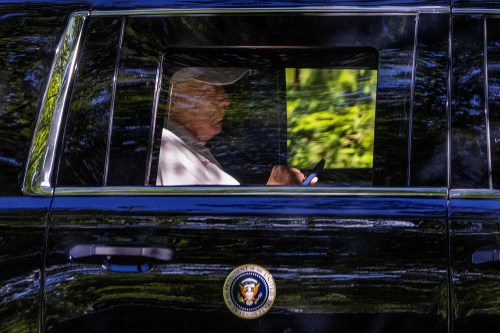

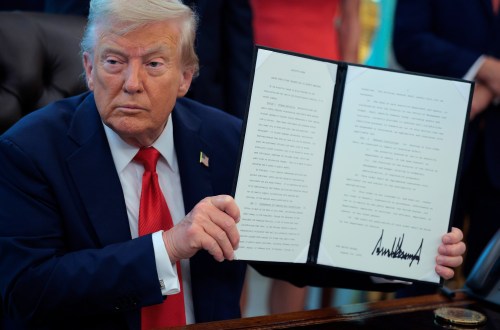
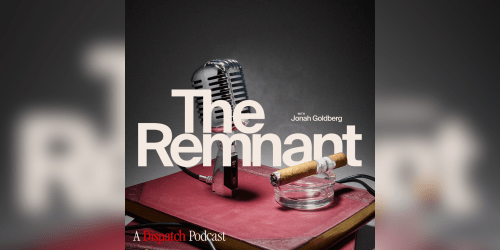




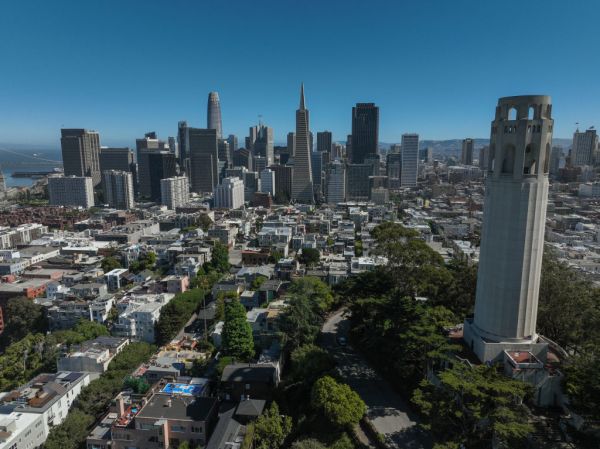
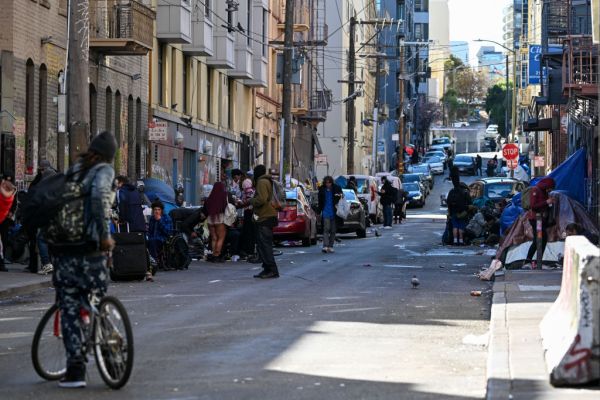
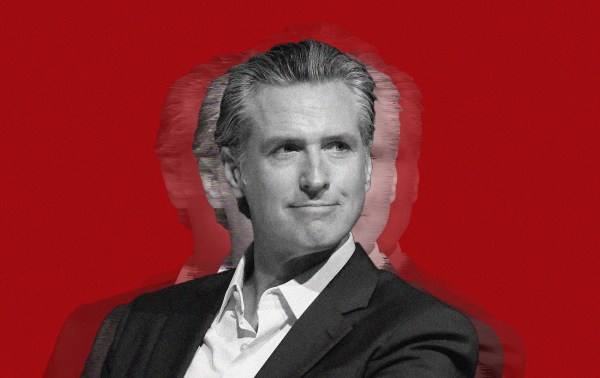
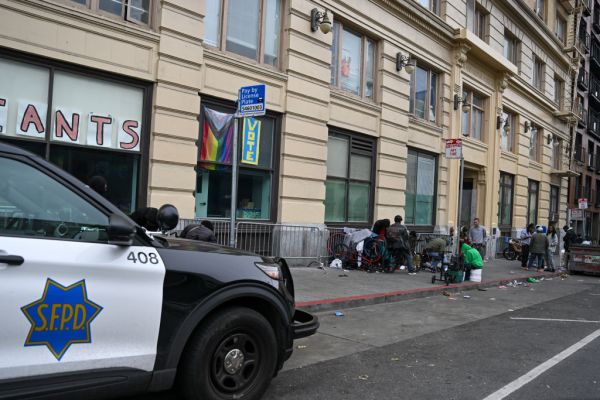
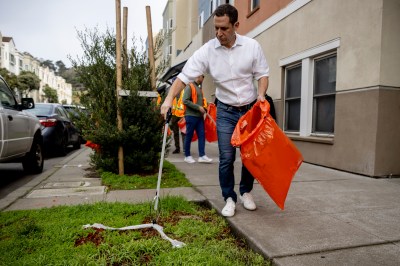
Please note that we at The Dispatch hold ourselves, our work, and our commenters to a higher standard than other places on the internet. We welcome comments that foster genuine debate or discussion—including comments critical of us or our work—but responses that include ad hominem attacks on fellow Dispatch members or are intended to stoke fear and anger may be moderated.
With your membership, you only have the ability to comment on The Morning Dispatch articles. Consider upgrading to join the conversation everywhere.